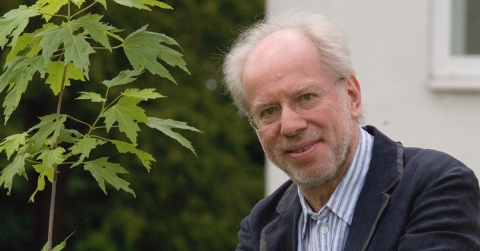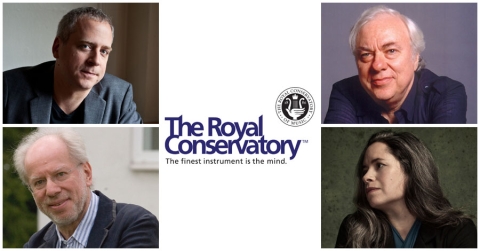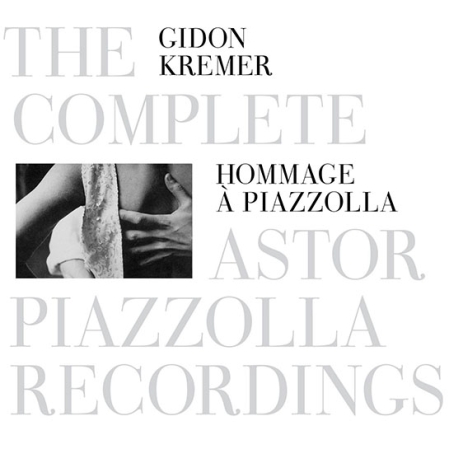Silencio is a meditative collection of 20th-century works for string orchestra, including works by Arvo Pärt, Philip Glass, and Vladimir Martynov. The disc is bookended with works by Pärt, whose Tabula Rasa opens the disc. The work was written for and dedicated to Kremer, violinist Tatjana Grindenko and conductor Eri Klas (all featured on this recording), who premiered it in 1977 in Estonia.
Silencio is a meditative collection of 20th-century works for string orchestra, including works by Arvo Pärt, Philip Glass, and Vladimir Martynov. The disc is bookended with works by Pärt, whose Tabula Rasa opens the disc. The work was written for and dedicated to Kremer, violinist Tatjana Grindenko and conductor Eri Klas (all featured on this recording), who premiered it in 1977 in Estonia. It was recorded live for release on ECM later that year. Tabula Rasa is scored for string orchestra, solo violins and prepared piano.
Philip Glass’s Company was originally composed for a Public Theater production of a play based on Samuel Beckett’s short novel of the same name. Later it became Glass’s String Quartet # 2 and received its first recording by Kronos Quartet, on their self-titled debut, in 1986. It is heard here in an adaptation for string orchestra.
The Russian composer Vladimir Martynov wrote “Come in!” for Kremer and Grindenko, who premiered the work in Leningrad in 1988. A six-movement work for two solo violins and string orchestra, it takes its title from the following text, written by the composer:
The staircase to Heaven is inside your heart; you enter through the door of your soul.
Our whole life is but an attempt to find this miraculous entrance.
All our deeds are but a timid knocking on this mysterious door
All our hopes are to hear a voice that would respond, ‘Come In!’
Closing the disc is the world premiere recording of Arvo Pärt’s Darf ich... (May I), recorded in Berlin last year.
Kremer founded the Kremerata Baltica, an orchestra of young musicians from the three Baltic States, in 1996. They first performed in Riga, Latvia in February 1997. Kremer had long sought to share his rich artistic experience with young musicians in his native Latvia and the Baltic region, and was prompted to form a more lasting relationship with the artists, as a way to give back to the community that fostered his own musical growth. The Kremerata Baltica is made up of musicians whose average age is 25 and who hail from Latvia, Lithuania and Estonia. Kremer, who acts as the group’s artistic director, said, in an interview for The New York Times, that it functions as “a musical democracy...open-minded, self-critical, a continuation of my musical spirit.”
The Kremerata Baltica, who the Los Angeles Times calls, “...extraordinary young players...they animate everything their bows touch...” recently signed an exclusive, six-record agreement with Nonesuch Records, inaugurated earlier this year by the release of Eight Seasons. This reorchestration of Piazzolla’s Cuatro estaciones porteñas, paired with the Vivaldi classic, brings with it a new way of listening to both works, and the possibility of discovering the connections they share.
PRODUCTION CREDITS
Recording produced by Helmut Mühle
Recorded November 25-27, 1998 at the Historical Museum, Tallinn, Estonia
Engineer: Erik Sikkema
Track 13 recorded September 10, 1999 at the Jesus-Christus-Kirche, Berlin, Germany
Engineer: Philipp Nedel
Edited by Gudrun Maurer
Design by John Gall
Photographs by William Clift © 2000
Executive Producers: Gidon Kremer and Matteo Tradardi
79582
MUSICIANS
Kremerata Baltica:
Gidon Kremer, solo violin and artistic director
Tatjana Grindenko, solo violin (1-12)
Violin: Dzeraldas Bidva, Eva Bindere, Migle Diksaitiene, Andrejs Golykovs, Inga Gylyte, Elo Ivask, Eriks Kirsfelds, Myroslava Kotorovych, Ruta Lipinaityte, Lasma Muceniece, Marija Nemanyte, Sandis Steinbergs, Andrei Valigura
Viola: Janis Lielbardis, Ula Ulijona, Zita Zemovica
Cello: Peteris Cirksis, Giedre Dirvanauskaite, Marta Sudraba
Bass: Danielis Rubinas, Indrek Sarrap
Prepared piano (1, 2), celesta: Reinut Tepp

















